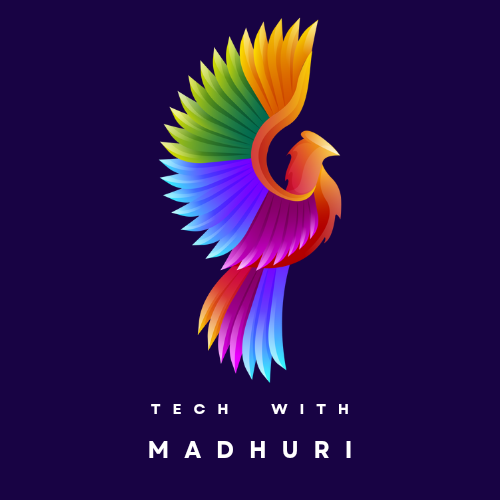
Do kids get headaches from migraines? What parents should be aware of…
Children and teens may experience nausea, light sensitivity, and a throbbing headache as symptoms of a migraine.
Children and teenagers frequently experience headaches. Indeed, over 50% will experience headaches at some point, and most teenagers will have experienced them by the time they are 18 years old. Furthermore, not all headaches are caused by viruses; some are actually migraines. In fact, up to 10% of kids and teenagers suffer from recurrent migraines.
If you suspect your teen or child is experiencing migraines, what should you do and what should you know?
How soon do migraines begin to happen?
Although one in twenty children have experienced a migraine by the age of ten, we rarely consider migraines in children. And it can occasionally start even earlier.
Both boys and girls are equally likely to have them prior to puberty. Girls experience migraines more frequently after puberty.
Which migraine symptoms do kids most frequently experience?
In adults, migraines are frequently unilateral. They are more likely to be felt in both forehead and temple areas on the sides of the head in children.
Although it can be challenging to distinguish a migraine from another type of headache, children
frequently report having throbbing pain, nausea, and light- and noise-sensitivity.
In children, flashing lights and other visual abnormalities that are frequently observed when a migraine attacks are less frequent. But before a migraine starts, parents might notice that their child is more lethargic, agitated, or pale, and that it takes some time for them to return to normal afterward.
What triggers childhood migraines?
What specifically causes migraines is unknown. It doesn’t appear to be related to blood flow to the brain, as we once believed. It seems that increased nerve sensitivity and reactivity to stimulation is the cause of migraines. Stress, exhaustion, hunger, or nearly anything else could be that stimulation.
Families are prone to migraines. As a matter of fact, the majority of migraineurs have a family member who also experiences migraines.
Is it possible to avoid migraines?
Recognizing and avoiding triggers is the best defense against migraines. Since each person’s triggers are unique, it’s a good idea to keep a headache diary.
When your child has a headache, record the following information: what was going on prior to the headache, where and how much it hurt, what helped, and anything else you can think of. This gives you and your doctor insight into patterns that help you identify the specific triggers that are triggering your child.
Making sure your child gets enough sleep, eats a regular, healthful diet, drinks water frequently, exercises, and manages stress are all good ideas. Not only does this help avoid migraines, but it’s also beneficial to general health!
How can you assist your kid in relieving a migraine?
Sometimes all you need to do to relieve a migraine is to lie down in a quiet, dark room and place a cool cloth over your forehead. If not, your doctor can advise you on the appropriate dosage for your child for ibuprofen or acetaminophen.
It is crucial to avoid giving your child these medications more frequently than 14 days per month, as this may exacerbate the situation and cause rebound headaches!
Do children with migraines benefit from prescription medications?
Should those methods prove insufficient, a group of drugs known as triptans may be useful in treating migraines in kids six years of age and older.
Doctors frequently prescribe medication to prevent migraines in children who suffer from frequent or severe migraines that interfere with their life and cause missed school days. There are several varieties, and your physician can provide you with guidance on which would be most beneficial for your child.
Around the time of their menstruation, some girls experience migraines. If that occurs regularly, it may be beneficial to take a preventative medication around the time of monthly menstruation.
When to call your physician
Schedule an appointment if you suspect your child is experiencing migraines. Carry the headache journal along. In addition to performing a physical examination and asking a lot of questions, your doctor will diagnose you. You can work together to determine what is best for your child.
In the event that your child exhibits symptoms such as a severe headache, stiff neck, difficulty moving or coordinating, unusually high levels of sleepiness, or abnormal behavior, you should always contact your doctor or go to the emergency room.
FAQS
- What effects do migraines have on kids?
Commonly occurring associated symptoms include light and sound sensitivity, nausea, and vomiting. Other symptoms mentioned by some kids include headaches, blurred vision, and lightheadedness or dizziness. Some kids get stomach pains during an attack. - What relieves migraines in kids?
OTC pain relievers, such as nonsteroidal anti-inflammatory drugs (NSAIDs) like ibuprofen and naproxen, should be the first line of treatment. Your child’s doctor might recommend triptans (like sumatriptan) for extremely severe migraines. - When do children first experience migraines?
A migraine can strike any child. Up to 28% of teenagers and 10% of kids between the ages of 5 and 15 get them. Most migraineurs (50 percent) experience their first attack before the age of twelve. There have even been cases of migraine in 18-month-old children! - How many kids experience migraines?
Although one in twenty children have experienced a migraine by the age of ten, we rarely consider migraines in children. And migraines can occasionally start even earlier. Both boys and girls are equally likely to have them prior to puberty. Girls experience migraines more frequently after puberty. - Can children with migraines be cured?
Techniques for prevention and treatment include massage, hot and cold packs, over-the-counter and prescription pain relievers, relaxation, and sleep. Although there isn’t a treatment for migraines, you can help your child lessen their frequency by helping them avoid triggers.
Must Read
Pradhan Mantri Jan Dhan Yojana (PMJDY 2023-24) Unbelievable Scheme With Incredible Benefits”
